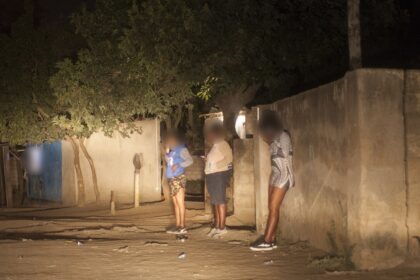Syringe shortage to slow vaccine rollout in Africa
COVID-19 vaccine rollout programs in Africa are likely to be affected by the shortage in the supply of syringes, the World Health Organisation has revealed.
Syringes are critical in the vaccination program but there are reports that there could a 2.2 billion shortfall in the supply.
According to WHO, the syringes that will be in short supply are those for COVID-19 vaccination and routine immunisation.
The shortage is going to be felt mainly in 2022.
‘’…limited access to crucial commodities such as syringes may slow the rollout of COVID-19 vaccines in Africa.
‘’UNICEF has reported an imminent shortfall of up to 2.2 billion auto-disable syringes for COVID-19 vaccination and routine immunization in 2022. This includes 0.3ml auto-disposable syringes for Pfizer-BioNTech COVID-19 vaccination.
‘’There is no global stockpile of the 0.3ml specialized syringes, which differ from the 0.5ml syringes used for other types of COVID-19 vaccines and routine vaccination.
‘’The market for 0.3ml auto-disable syringes is tight and extremely competitive. As such, these are in short supply and will remain so through at least the first quarter of next year,’’ said the WHO statement.
According to the world health board, countries in Africa such as Kenya, Rwanda, and South Africa, have experienced delays in receiving syringes.
There is a need to boost syringe production
World Health Organization regional director for Africa Matshidiso Moeti said drastic measures must be taken to boost syringe production.
“The looming threat of a vaccine commodities crisis hangs over the continent. Early next year COVID-19 vaccines will start pouring into Africa, but a scarcity of syringes could paralyze progress. Drastic measures must be taken to boost syringe production, fast. Countless African lives depend on it,”
‘’The COVAX Facility is working to address this threat by securing deals with syringe manufacturers, and through better planning to avoid deliveries outpacing the supply of syringes,’’ said the director.
Zimbabwe procured 16.2 million syringes
While it is not yet clear if countries such as Zimbabwe will feel the impact of the syringe shortages, Finance Minister Mthuli Ncube that the country had purchased 16.2 million syringes when it procured the 16.2 million doses of COVID-19 vaccines.
The syringes are enough to inoculate about half of the country’s population. Zimbabwe is said to have an estimated 16 million people.
According to the Minister of Health and Child Care Constantino Chiwenga, the country wants to inoculate about 60% of its population to reach herd immunity.
Despite buying this huge quantity of vaccines and syringes, the Zimbabwe government indicated that it is continuing to mobilise more resources to purchase materials and vaccines for its vaccination program that started in February this year.
50 million COVID-19 Vaccine doses delivered in Africa
Meanwhile, the World Health Organisation has indicated that about 50 million COVID-19 doses have arrived in Africa since the beginning of October.
‘’In October to date, around 50 million COVID-19 vaccine doses have arrived in Africa, which is almost double what was shipped in September.
‘’COVAX, the global platform to ensure equitable access to vaccines, has delivered almost 90% percent of the vaccines deployed this month and has accelerated its shipments since July.
‘’However, at the current pace, Africa still faces a 275 million shortfall of COVID-19 vaccines against the year-end target of fully vaccinating 40% of its people.
‘’Africa has fully vaccinated 77 million people, just 6% of its population. In comparison, over 70% of high-income countries have already vaccinated more than 40% of their people.
‘’Countries still need to improve their readiness for COVID-19 vaccine rollouts. Forty-two percent of countries in the African Region have not yet completed district-level plans for their campaigns, while nearly 40% have not yet undertaken intra-action reviews which are key to refining and improving their vaccination campaigns,’’ WHO said.
Syringe shortage to slow vaccine rollout in Africa



